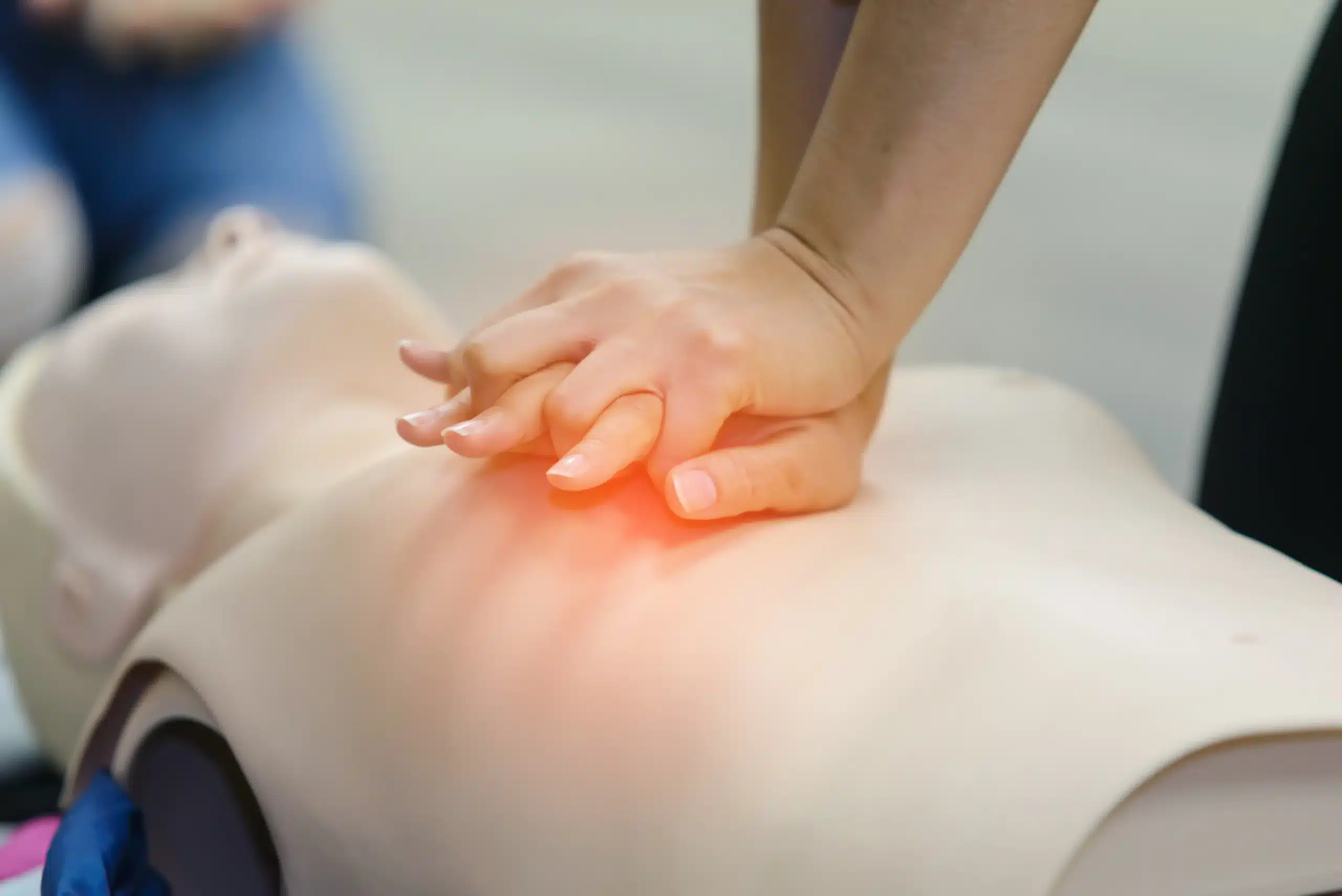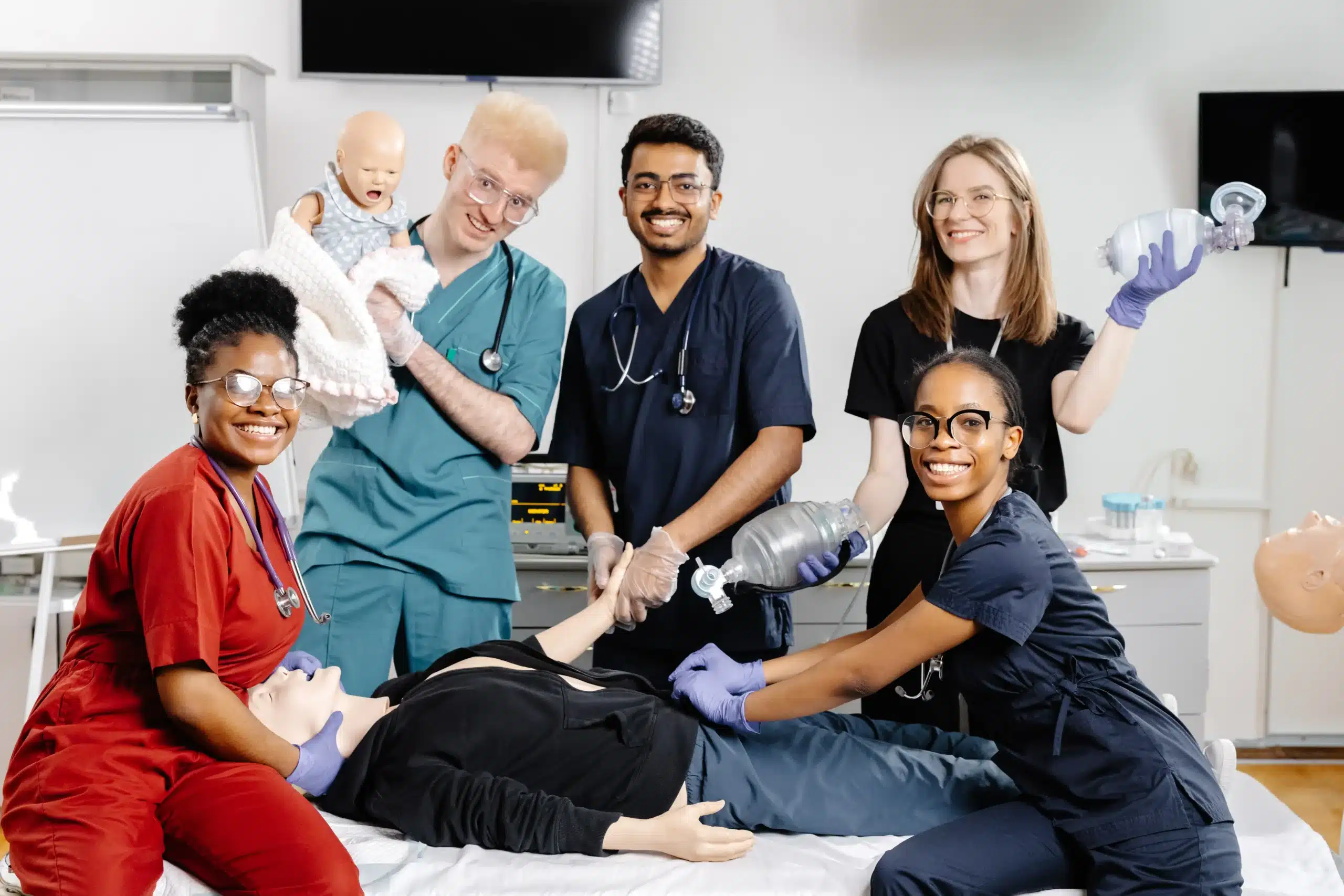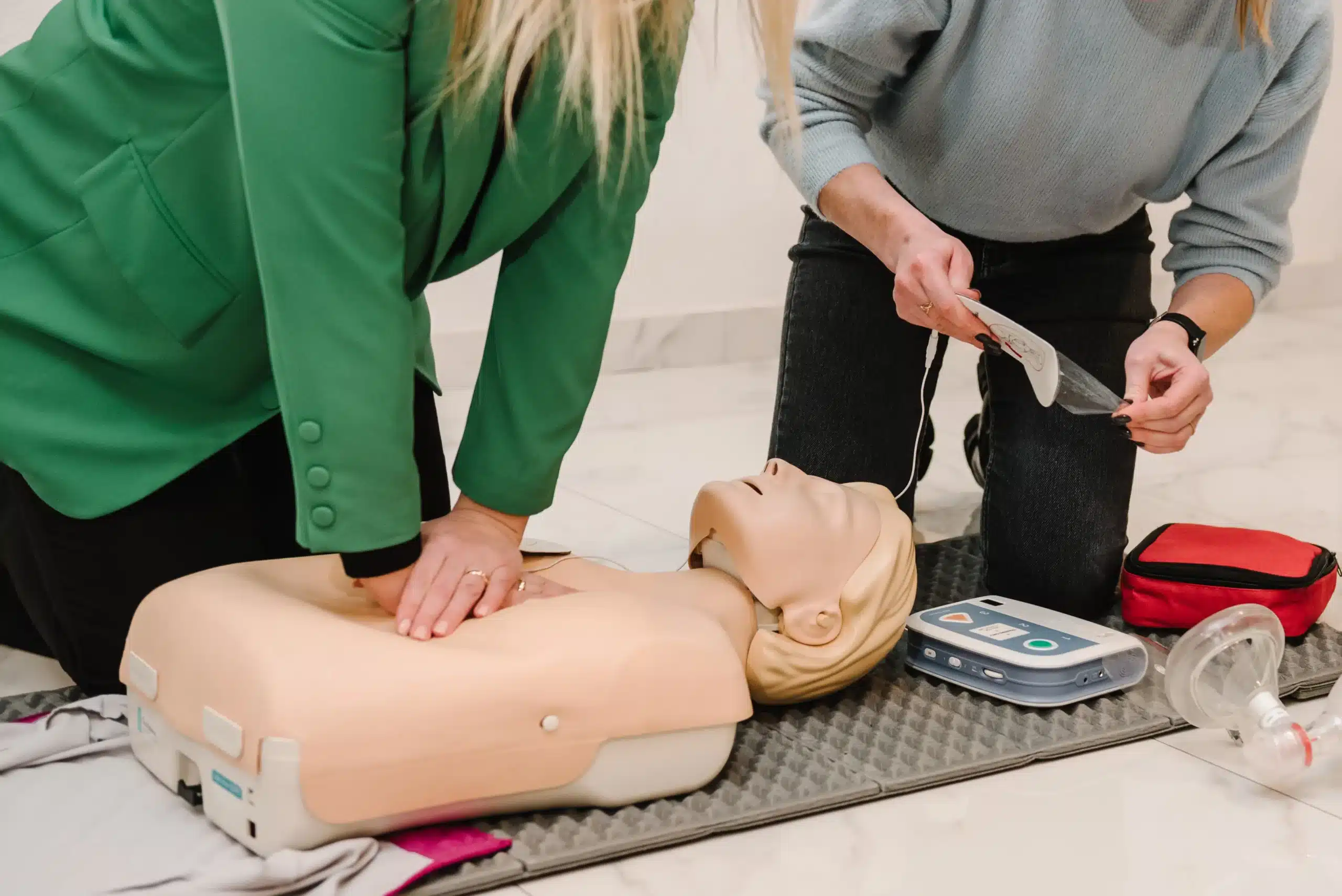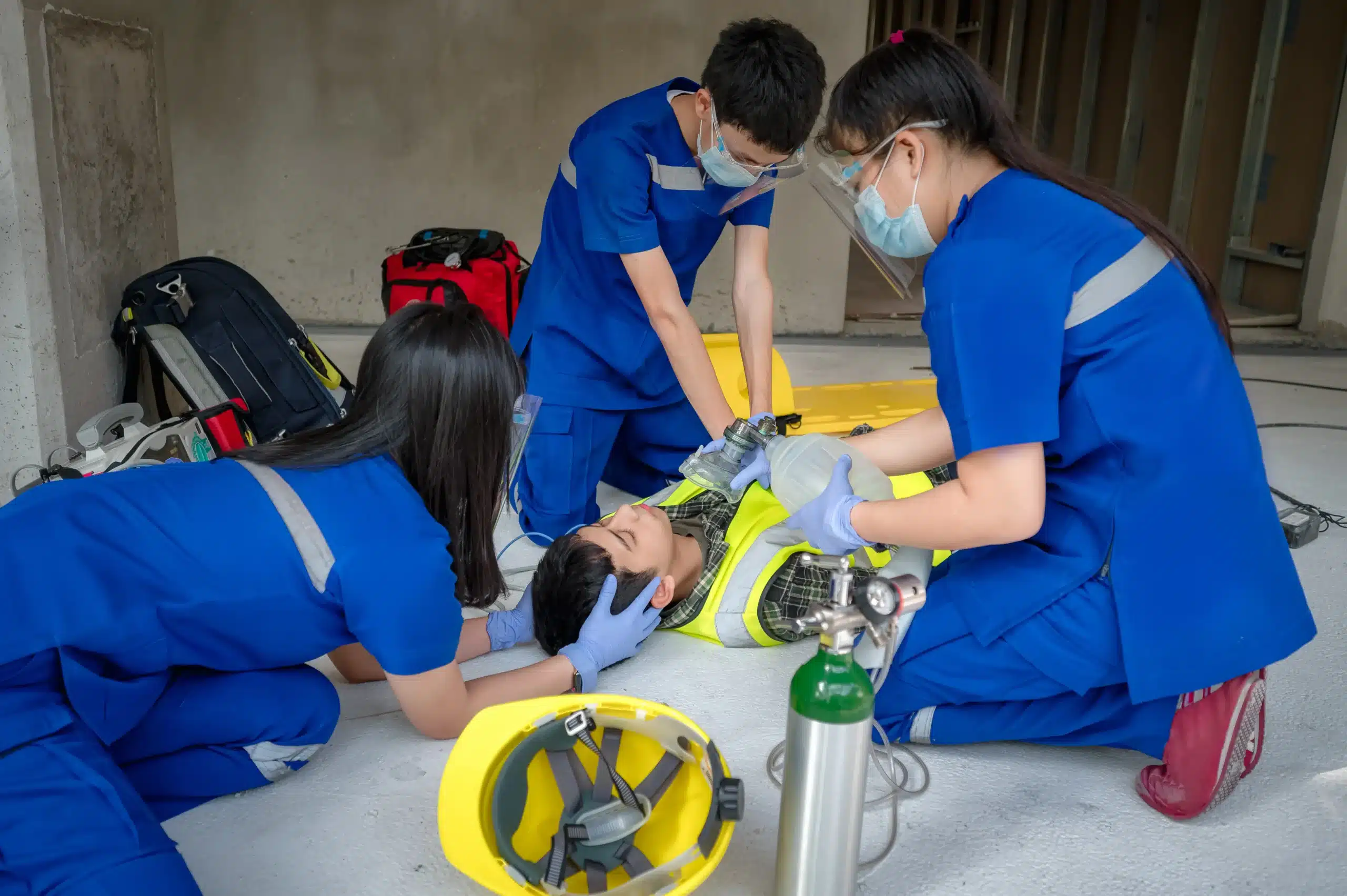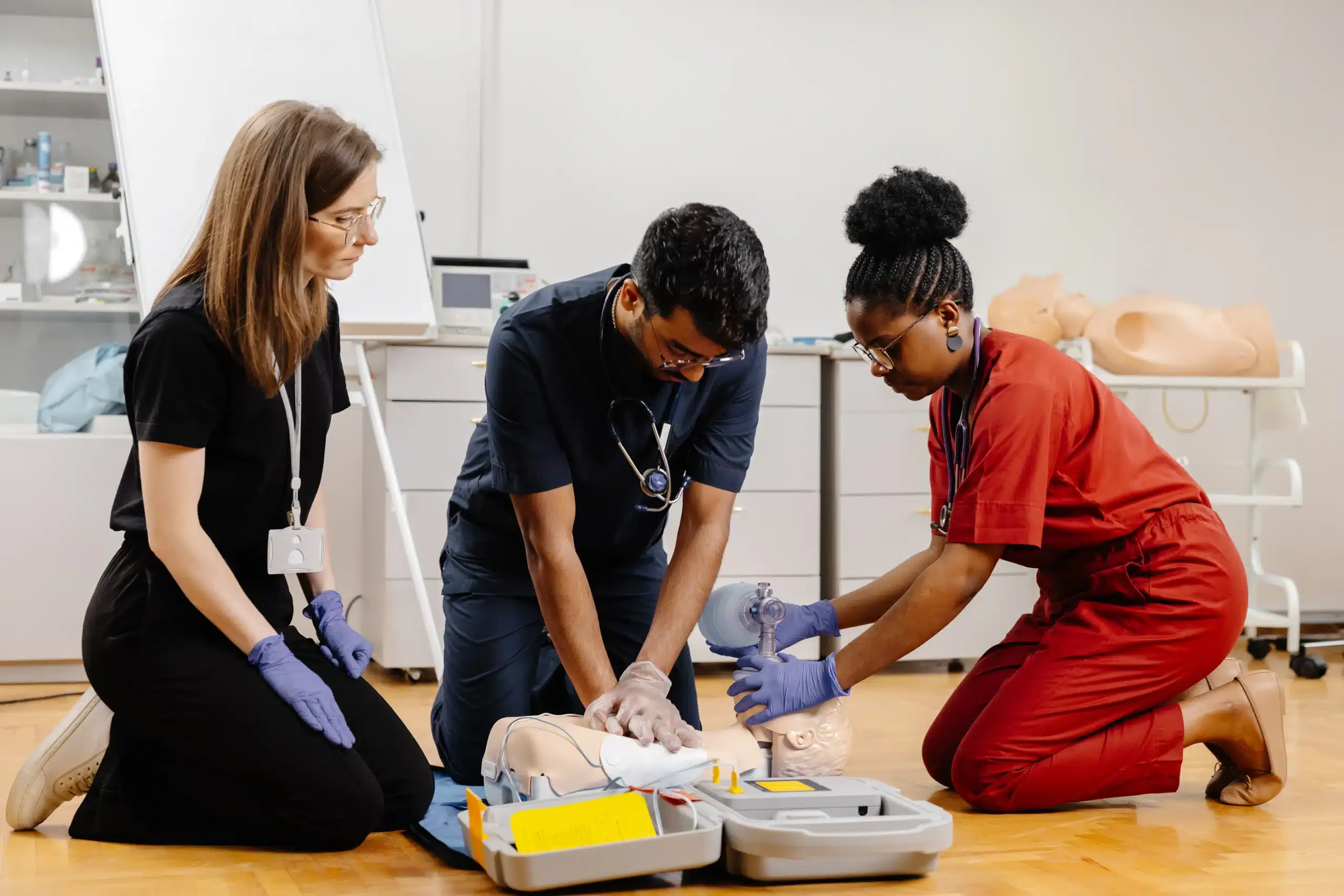Balancing the demands of a healthcare career with continuing education requirements can feel overwhelming. If you’re looking for a streamlined, flexible way to get your PALS certification in Antioch, PALS HeartCode might be the perfect fit. This blended learning program from the American Heart Association lets you learn at your own pace online, then demonstrate your skills in a practical setting. This post will guide you through everything you need to know about PALS HeartCode in Antioch, from understanding the blended learning format to finding reputable training centers. We’ll also discuss costs, renewal options, and address common concerns, ensuring you have all the information you need to confidently pursue your PALS certification.
Key Takeaways
- PALS HeartCode blends online learning with hands-on skills practice: This approach offers flexibility for busy professionals, allowing you to learn the material at your own speed and then demonstrate your skills in person.
- The program’s adaptive technology personalizes your learning experience: PALS HeartCode adjusts to your individual learning pace and style, focusing on areas where you need more support and maximizing your learning efficiency.
- Completing the pre-course work and videos significantly increases your chances of success: Preparing beforehand builds a strong foundation and boosts your confidence for the in-person skills session and certification test.
What is PALS HeartCode?
Defining PALS HeartCode
PALS HeartCode is a blended learning program from the American Heart Association (AHA) for Pediatric Advanced Life Support. It combines online modules with an in-person skills session, offering a flexible way to earn your PALS certification. This approach allows you to learn the material at your own speed online, then demonstrate your skills in a practical setting. For more information about our PALS courses, visit our PALS page.
Key Differences from Traditional PALS
The key difference between HeartCode PALS and a traditional PALS course is the blended learning format. Traditional PALS courses typically involve a full day or more in a classroom. HeartCode PALS lets you complete the coursework online at your own pace, offering greater flexibility. After finishing the online portion, you’ll schedule a shorter, hands-on skills session with an AHA instructor. This blended approach combines online learning with the hands-on practice needed for PALS certification. The AHA provides further details on their website about various PALS course options. If you’re looking for training in nearby areas, check out our Northern CA CPR directory.
How PALS HeartCode Works in Antioch
PALS HeartCode combines online learning with hands-on skills training, providing a flexible path to certification. This blended learning approach lets you learn essential pediatric life support skills at your own speed and on your own schedule. Here’s how it works:
Online Learning
The PALS HeartCode program begins with interactive online modules. These self-directed lessons cover essential pediatric life support algorithms, protocols, and case studies. You’ll work through various scenarios, make decisions, and receive immediate feedback, reinforcing your understanding of the material. This online portion allows you to learn at your own pace, pausing, reviewing, and repeating sections as needed. Safety Training Seminars offers this flexible online training.
In-Person Skills Session
After completing the online modules, you’ll attend an in-person skills session with an American Heart Association certified instructor. This session focuses on practicing the skills you learned online. You’ll work with realistic mannequins and simulations, giving you the chance to demonstrate your proficiency in essential PALS techniques. Expect this hands-on portion to take approximately five hours, including short breaks. The American Heart Association provides details on the skills session.
Time Commitment and Flexibility
One of the biggest advantages of PALS HeartCode is its flexibility. The online modules typically require three to four hours to complete, but you can spread this time out over days or weeks to fit your schedule. Watching pre-course videos can significantly increase your chances of passing the skills test. Check with your chosen training provider, like Safety Training Seminars, for access to these helpful resources. Combined with the in-person skills session, the entire PALS HeartCode certification process can be completed efficiently while accommodating your other commitments.
PALS HeartCode Certification: Cost and Value
Getting PALS HeartCode certified involves a few different cost considerations, depending on whether you’re getting certified for the first time, renewing your certification, or registering as part of a group. Let’s break down each scenario.
Initial Certification Costs
If you’re new to PALS, expect the initial HeartCode certification to cost somewhere between $200 and $290. This fee covers both the online portion and the required in-person skills session, as well as your certification card. For example, Safety Training Seminars offers the complete PALS HeartCode package, including the online course, skills testing, and PALS card, for $290. Remember, prices can vary slightly between providers, so it’s always a good idea to check with a few different training centers in Antioch, like SureFire CPR or Square One Medical, to compare what they offer.
Renewal Costs and Discounts
Renewing your PALS HeartCode certification is typically more affordable than the initial certification. You’ll likely find renewal courses ranging from $150 to $160. This lower price reflects the fact that you’ve already completed the core training and just need a refresher. Keep an eye out for any early bird discounts or special offers some providers might have for renewals. Check out resources like the Northern CA CPR Directory for a comprehensive list of providers and their offerings.
Group Training Options
If you’re coordinating training for a group, such as your colleagues at a hospital or clinic, definitely inquire about group discounts. Many providers offer reduced rates for group registrations, making it a cost-effective way to ensure everyone stays certified. Some providers, including Safety Training Seminars, also offer on-site group training, which can be incredibly convenient for larger groups. This can save you travel time and allow for a more tailored training experience.
Who Should Take PALS HeartCode?
This blended learning course combines online instruction with hands-on skills practice, making it ideal for busy professionals. Let’s explore who can benefit from this approach.
Target Healthcare Professionals
PALS HeartCode targets healthcare providers who regularly work with infants and children. This includes physicians, nurses, paramedics, emergency medical technicians (EMTs), respiratory therapists, and other professionals in critical care settings. If your job involves pediatric advanced life support, this course gives you the knowledge and skills to respond effectively in emergencies. Anyone working in emergency rooms, pediatric intensive care units (PICUs), and neonatal intensive care units (NICUs) will find this training invaluable.
Prerequisites and Eligibility
Before starting PALS HeartCode, you should have a current Basic Life Support (BLS) certification for healthcare providers. This prerequisite ensures you have the foundational CPR skills and basic airway management essential for advanced life support situations. You’ll be evaluated on these core BLS skills during the in-person skills session portion of the course. Review the American Heart Association’s HeartCode PALS FAQ for a complete list of skills tested.
BLS Certification Requirement
The PALS HeartCode program emphasizes a systematic approach to pediatric assessment, treatment, and resuscitation. The PALS Provider Course improves outcomes for pediatric patients by preparing healthcare providers to recognize and intervene in patients experiencing respiratory emergencies, shock, and cardiopulmonary arrest. A current BLS certification is required to complete the PALS HeartCode course and receive your PALS certification. Find more information about BLS certification and available courses on the American Heart Association website. Ensure your BLS certification is current before enrolling in PALS HeartCode for a smooth and efficient learning experience.
Top PALS HeartCode Providers in Antioch
Finding the right PALS HeartCode training center is crucial for a smooth and effective learning experience. Here’s a look at some reputable providers in the Antioch area:
Safety Training Seminars
Safety Training Seminars, a woman-owned business, has offered high-quality American Heart Association courses since 1989. They provide various courses, including BLS, ACLS, PALS, CPR, and First-Aid, in over 60 cities, with classes available every day of the week. This long-standing presence makes them a reliable choice for your PALS HeartCode training. Check their class calendar for upcoming courses. They also offer discounts for group classes.
SureFire CPR
SureFire CPR offers a variety of CPR and first-aid classes, including PALS certification. They focus on flexible scheduling and comprehensive training to accommodate healthcare professionals’ busy schedules. If you’re looking for convenient and thorough PALS HeartCode training, SureFire CPR is worth considering. Learn more about their CPR and first-aid classes in Antioch.
Square One Medical
Square One Medical provides PALS certification courses emphasizing essential pediatric emergency response skills. They offer both online and in-person training options, catering to different learning preferences. Explore their PALS HeartCode training options if you seek flexibility.
American Heart Association Training Centers
The American Heart Association (AHA) offers PALS certification through various training centers, including online and blended learning formats. Explore the different PALS course options directly through the AHA website. For those interested in related certifications, the AHA also provides resources for the PALS HeartCode program and the American Academy of Pediatrics NRP certification.
Benefits of PALS HeartCode
PALS HeartCode offers several advantages, especially for busy professionals and those who prefer a flexible learning environment. Let’s explore some key benefits:
Blended Learning Advantages
The beauty of PALS HeartCode lies in its blended learning approach, combining online learning with a hands-on skills session. This means you can learn the cognitive portion of the course at your own speed, pausing, reviewing, and repeating sections as needed. This flexibility is a game-changer for those juggling work, family, and other commitments. Once you’ve completed the online modules, you’ll participate in a practical skills session with a certified instructor. This in-person component allows you to apply your knowledge, practice essential skills, and receive personalized feedback. This guide to PALS HeartCode certification offers a helpful overview of this blended learning approach.
Adaptive Learning Technology
PALS HeartCode uses adaptive learning technology, meaning the program adjusts to your individual learning pace and style. The algorithm assesses your performance and confidence level on each question, tailoring the learning path to focus on areas where you need more support. This personalized approach ensures you’re spending time on the most relevant material, maximizing your learning efficiency. The American Heart Association offers more information on their PALS course options, including details on how this adaptive technology works.
Increased Pass Rates
One of the most compelling benefits of PALS HeartCode is its impact on pass rates. Studies show that completing the pre-course videos significantly increases your chances of successfully completing the skills test. By familiarizing yourself with the material beforehand, you’ll walk into the in-person session with a solid foundation, boosting your confidence and preparedness. This information on CPR classes in Antioch highlights the importance of these pre-course videos.
Addressing Common Concerns
We understand you might have some questions about the PALS HeartCode blended learning format. Let’s address a few common concerns:
Online Learning Effectiveness
Many healthcare providers have busy schedules, so we designed the PALS HeartCode blended learning course with flexibility in mind. The online portion lets you learn at your own pace, fitting it around your other commitments. The American Heart Association explains that HeartCode PALS uses a personalized adaptive algorithm to guide students toward PALS mastery. This means the program adjusts to your learning style, helping you efficiently gain the skills and knowledge you need.
Physical Requirements
While the online portion of PALS HeartCode is self-paced, the in-person skills session does involve physical activity. As Bay Area CPR points out, CPR training can be strenuous. Antioch CPR Classes recommends that if you have any physical limitations, consider waiting until you’re feeling your best. Rescheduling is always an option if you become fatigued during the training.
Time Management
One of the biggest benefits of PALS HeartCode is its flexible, self-paced online component. You can expect the online portion to take about one to two hours for BLS and three to four hours for ACLS or PALS. You can start and stop as needed, making it much easier to fit into a busy schedule. Both Antioch CPR Classes and Bay Area CPR emphasize the importance of watching the pre-course videos. Doing so can significantly improve your chances of passing the skills test, increasing success rates by about 50%.
Prepare for Success
Getting ready for your PALS HeartCode certification involves a few key steps. Understanding these will make the process smoother and set you up for success.
Pre-Course Materials
Before your PALS course begins, you’ll receive access to an online component. This typically takes about three to four hours to complete. The good news is that it’s self-paced, so you can work through the materials on your own schedule using your computer or tablet. Plan to complete this portion before your in-person skills session.
Tips for Online and In-Person Components
PALS HeartCode uses a blended learning approach. This means you’ll complete online coursework and then attend an in-person skills session with an AHA Instructor or HeartCode compatible manikin. The hands-on portion usually takes about five hours, including breaks. During the skills checkoff, you’ll work with a voice-assisted manikin (VAM) without an instructor in the room. If you need help, you can always call the office for assistance. For more information on the course structure, review the PALS course options from the American Heart Association.
Importance of Pre-Course Videos
The pre-course videos are essential for mastering the skills you’ll need during the in-person session. Watching these videos significantly increases your chances of passing the skills test—we’re talking about a 50% increase. Make sure to review these and complete the online portion before your in-person skills session to feel confident and prepared. For additional preparation tips, check out resources like CPR classes in Antioch.
Maintain Your Certification
Once you’ve earned your PALS certification, staying current is key to providing the best possible care. This section covers renewing your certification, continuing education opportunities, and how PALS HeartCode helps you stay up-to-date with the latest protocols.
Renewal Process
Your PALS certification is valid for two years. To maintain your credentials, renew your certification before it expires. The renewal process, much like the initial certification, involves a cognitive portion and a skills check. Plan and schedule your renewal in advance to avoid a lapse in your certification. Check with your employer or a certified training center like Safety Training Seminars for available renewal courses. You can find more information on PALS HeartCode training in nearby Pittsburg on our blog.
Continuing Education
Many healthcare professionals benefit from continuing education credits. Whether PALS HeartCode offers credits for your profession depends on your licensing board’s requirements. It’s always best to check with your board or review the course preparation FAQ for details. Staying informed about continuing education can help you maintain your certifications and advance your career.
Staying Updated with Protocols
PALS HeartCode covers essential pediatric emergency response skills, equipping you with the knowledge to handle critical situations. The program uses a personalized adaptive algorithm tailored to each student’s needs, setting them on the most efficient path to PALS mastery. This ensures you’re learning the most current protocols and best practices, giving you the confidence to respond effectively in real-world scenarios.
FAQs About PALS HeartCode in Antioch
Here are some of the most frequently asked questions about PALS HeartCode training in Antioch:
How long does it take to complete the PALS HeartCode course?
The PALS HeartCode training blends online learning with an in-person skills session. The online portion typically takes 3–4 hours to complete, and you can work through the modules at your own pace. The in-person skills check at a local testing site like Brentwood CPR Classes (AHA PALS classes) takes about 30–40 minutes.
What does the PALS HeartCode course cost in Antioch?
The total cost, which covers the online training, skills testing, and your PALS certification card, is $290. Check with your chosen provider for information on group discounts and their low price guarantee.
What are the technical requirements for the online portion?
You’ll need a computer or tablet to access the American Heart Association’s online PALS course. Mobile phones aren’t compatible, so plan accordingly. For more details, explore additional CPR class options in Antioch.
Where can I find PALS HeartCode classes in Antioch and nearby areas like Brentwood and Concord?
Safety Training Seminars offers PALS HeartCode training in over 60 cities, making it easy to find a convenient location. Browse their Northern California CPR directory for training centers near you. They also offer other important certifications, such as EMSA Child Care Health & Safety and the American Academy of Pediatrics NRP.
Related Articles
- PALS HeartCode Brentwood: Your Certification Guide – Brentwood CPR Classes
- Pediatric Advanced Life Support (PALS) in Concord – Brentwood CPR Classes
- Online PALS Classes in Concord: Your Guide – Brentwood CPR Classes
- AHA PALS Classes in Brentwood, CA – Brentwood CPR Classes
- ACLS HeartCode Brentwood: Your Complete Guide – Brentwood CPR Classes
Frequently Asked Questions
How long does it take to complete the PALS HeartCode course?
The online portion typically takes 3-4 hours, which you can complete at your own pace. The in-person skills session adds another 5 hours, including short breaks.
What if I have physical limitations? Will I still be able to participate in the skills session?
While the online portion is self-paced, the in-person skills session does involve physical activity, including CPR practice. If you have any physical limitations, it’s best to discuss them with your chosen training provider beforehand. They can offer guidance and potential accommodations. Rescheduling is always an option if needed.
What’s the difference between PALS HeartCode and a traditional PALS course?
Traditional PALS courses typically involve a full day or more in a classroom setting. PALS HeartCode blends online learning with a shorter, in-person skills session. This allows for greater flexibility, as you can complete the online modules at your own pace.
Is there a BLS prerequisite for PALS HeartCode?
Yes, you must have a current BLS for Healthcare Providers certification before taking PALS HeartCode. This ensures you have the foundational knowledge and skills necessary for advanced life support.
How much does PALS HeartCode cost?
The cost varies depending on whether you’re getting initially certified or renewing. Initial certification typically ranges from $200 to $290, while renewals are usually between $150 and $160. Group discounts are often available, so be sure to ask your training provider.


